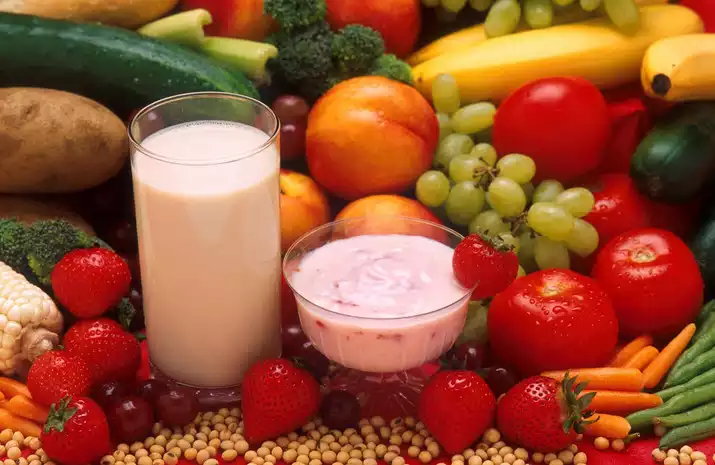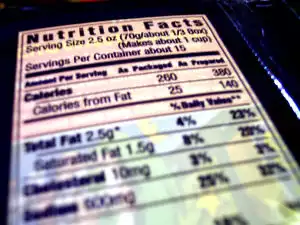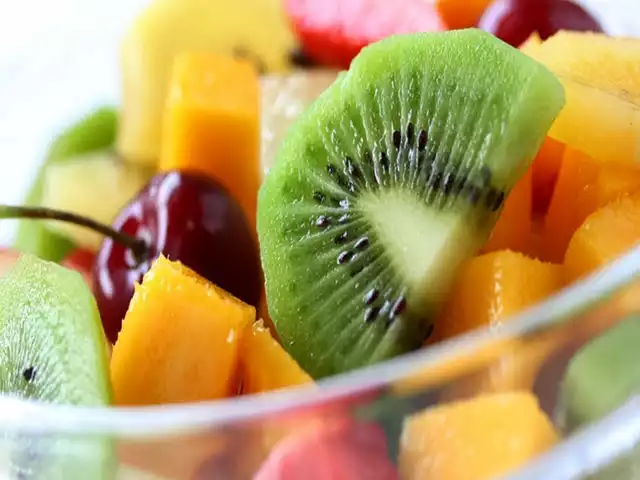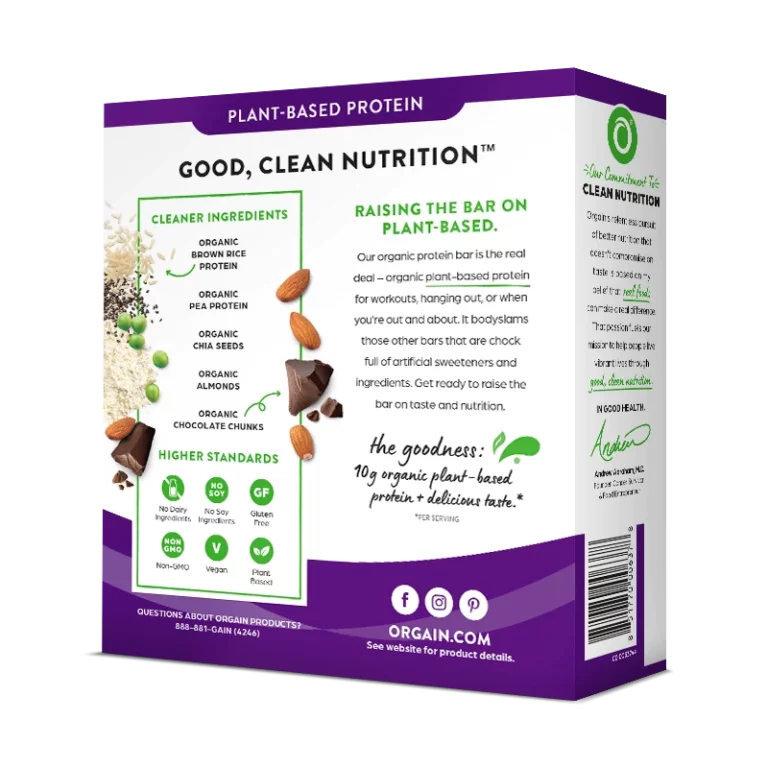Protein has long been praised as a crucial component of a healthy diet, and for good reason.
This macronutrient plays a vital role in our body’s functioning, from building muscles to producing hormones and enzymes.
However, in recent years, protein has gained even more attention for its potential role in weight loss.
The idea of consuming more protein to shed pounds may seem counterintuitive, as many associate this nutrient with bulking up rather than slimming down.
However, numerous studies have shown that protein can aid in weight loss by increasing satiety, boosting metabolism, and preserving muscle mass.
In this article, we will delve into the Benefits Of Protein and the connection to weight loss and how it can be an effective tool in achieving and maintaining a healthy weight.
From examining its impact on weight loss to exploring the best sources of protein, we will provide a comprehensive guide on the connection between protein and weight loss.
So, if you are looking to shed those extra pounds or simply improve your overall health, read on to discover the benefits of protein and how it can help you reach your goals.
Table of Contents on The Benefits Of Protein and the connection to weight loss
Increase satiety and control appetite
One of the key benefits of incorporating protein into your diet is its ability to increase satiety and control appetite.
Protein-rich foods have been found to have a greater impact on reducing hunger and promoting a feeling of fullness compared to foods high in carbohydrates or fats.
This is because protein takes longer to digest, keeping you satisfied for a longer period of time and preventing unnecessary snacking or overeating.
Additionally, protein stimulates the release of hormones, such as peptide YY and glucagon-like peptide-1, which play a role in regulating appetite and signaling the brain that you are full.
Including adequate protein in your meals and snacks can help you maintain a stable blood sugar level, avoid energy crashes, and ultimately support your weight loss efforts.
Boost metabolism and burn fat
Protein also plays a crucial role in boosting metabolism and promoting fat burning in the body.
When you consume protein-rich foods, your body requires more energy to digest and process them compared to carbohydrates or fats.
This thermic effect of food, also known as the energy expenditure associated with digestion, absorption, and metabolism of nutrients, can increase your overall calorie burn.
Moreover, protein is essential for the maintenance and growth of lean muscle mass.
Muscles are metabolically active tissues that require more energy to function.
By including adequate protein in your diet, you can support the development and preservation of lean muscle mass, which can contribute to an increase in your resting metabolic rate.
Additionally, protein consumption can help prevent muscle loss during weight loss efforts.
When you reduce your calorie intake to lose weight, your body may break down muscle tissue for energy.
However, consuming enough protein can help preserve muscle mass and ensure that the weight you lose comes primarily from fat stores.
In conclusion, incorporating protein into your diet not only promotes satiety and controls appetite but also boosts metabolism and supports fat burning.
By prioritizing protein-rich foods and maintaining a balanced diet, you can optimize your weight loss journey and achieve long-term success.
Preserve muscle mass during weight loss
Preserve muscle mass during weight loss is a critical aspect of achieving sustainable and healthy results.
When engaging in a calorie deficit to shed pounds, the body sometimes turns to breaking down muscle tissue for energy.
However, by ensuring an adequate intake of protein, you can help prevent muscle loss during this process.
Protein provides the essential amino acids necessary for muscle maintenance and repair, allowing you to retain your hard-earned muscle mass while primarily losing fat.
Incorporating lean protein sources such as poultry, fish, eggs, legumes, and tofu into your meals can support your weight loss journey while preserving your muscle mass.
This is crucial not only for a toned and defined physique but also for maintaining a higher metabolic rate, as muscle tissue is more metabolically active than fat.
Prioritizing protein consumption during weight loss can contribute to better overall body composition and long-term success in achieving and maintaining a healthy weight.
Improve body composition and appearance
Achieving your desired body composition and appearance involves more than just shedding pounds on the scale.
It requires a strategic approach that focuses on reducing body fat while simultaneously building and maintaining lean muscle mass.
Protein plays a crucial role in this process as it provides the building blocks necessary for muscle growth and repair.
By incorporating high-quality protein sources into your diet, such as lean meats, dairy products, and plant-based sources, you can support muscle development and enhance your overall physique.
In addition to its muscle-building benefits, protein also helps to increase satiety, keeping you feeling fuller for longer and reducing the likelihood of overeating.
By prioritizing protein intake, you can improve your body composition, sculpt your physique, and achieve a more aesthetically pleasing appearance.
Provides essential nutrients for overall health
Protein is not only essential for muscle development and body composition goals, but it also provides a wide range of essential nutrients for overall health.
It is a fundamental macronutrient that plays a vital role in various bodily functions.
Protein is responsible for supporting the growth and repair of tissues, including muscles, skin, hair, and nails.
It also aids in the production of enzymes, hormones, and antibodies that are essential for a strong immune system and proper functioning of the body.
Additionally, protein helps to regulate blood sugar levels, supports healthy digestion, and contributes to the feeling of satiety.
By incorporating adequate amounts of protein into your diet, you can ensure that your body receives the necessary nutrients to thrive and maintain optimal health.
In conclusion, the evidence is clear that incorporating protein into one’s diet can have numerous benefits, including aiding in weight loss.
From its ability to increase satiety and boost metabolism, to its role in preserving muscle mass and promoting fat loss, protein is a crucial nutrient for those looking to achieve their weight loss goals.
So whether you’re trying to shed a few pounds or simply maintain a healthy weight, be sure to prioritize protein in your diet.
Your body will thank you.
FAQ
How does consuming protein help with weight loss?
Consuming protein helps with weight loss by boosting metabolism, reducing appetite, and promoting feelings of fullness.
Protein requires more energy to digest compared to fats and carbohydrates, leading to increased calorie burn.
Additionally, protein promotes the preservation of lean muscle mass during weight loss, preventing a decrease in metabolism.
Including protein in meals and snacks can help regulate blood sugar levels, reduce cravings, and support overall weight loss efforts by providing essential nutrients and promoting satiety.
What are some sources of protein that are beneficial for weight loss?
Lean sources of protein such as chicken, turkey, fish, tofu, Greek yogurt, eggs, lentils, and quinoa are beneficial for weight loss as they help to build and repair muscle mass, increase metabolism, and keep you feeling full and satisfied for longer periods of time.
These protein sources are also typically lower in calories and saturated fats compared to other high-fat protein options, making them ideal choices for those looking to lose weight.
Additionally, incorporating a variety of protein sources into your diet can help ensure you are getting all essential amino acids necessary for overall health and well-being.
Can increasing protein intake help boost metabolism and aid in burning more calories?
Yes, increasing protein intake can help boost metabolism and aid in burning more calories.
This is because protein has a higher thermic effect compared to fats and carbohydrates, meaning the body uses more energy to digest and metabolize protein.
Additionally, protein can help preserve lean muscle mass, which is important for maintaining a higher metabolic rate.
Consuming protein-rich foods can also increase feelings of fullness and satiety, potentially reducing overall calorie intake.
However, it’s important to maintain a balanced diet and not rely solely on protein for weight loss or metabolism enhancement.
What role does protein play in preserving muscle mass during weight loss?
Protein plays a crucial role in preserving muscle mass during weight loss by providing the necessary building blocks for muscle repair and growth, maintaining satiety to prevent muscle breakdown, and supporting metabolic functions that help in retaining lean body mass.
Adequate protein intake during weight loss helps to ensure that the body primarily burns fat for energy rather than breaking down muscle tissue, ultimately aiding in the preservation of muscle mass and promoting a more favorable body composition.
Are there specific protein-rich foods that are particularly effective for promoting weight loss?
Yes, foods such as lean meats, fish, eggs, Greek yogurt, legumes, and tofu are protein-rich options that can aid in weight loss by promoting fullness, increasing metabolism, and supporting muscle growth.
These foods can help reduce cravings, boost satiety, and improve overall body composition when incorporated into a balanced diet and combined with regular exercise.







